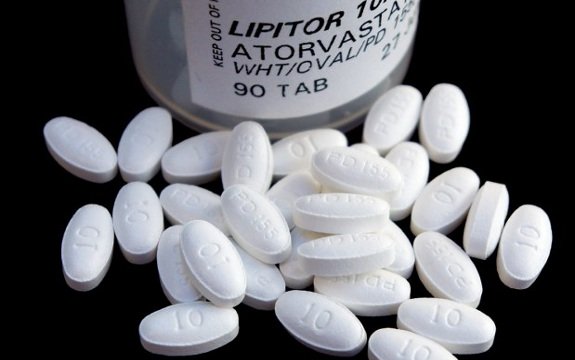UK Officials Join U.S. in Needlessly Recommending more Dangerous Cholesterol-Lowering Drugs

 Approximately one-fourth of American men over the age of 45 are on a class of prescription drugs known as statins. But some think this isn’t enough. Both in the U.S. and now in the U.K. officials are recommending more liberal prescription practices for the potentially dangerous drugs.
Approximately one-fourth of American men over the age of 45 are on a class of prescription drugs known as statins. But some think this isn’t enough. Both in the U.S. and now in the U.K. officials are recommending more liberal prescription practices for the potentially dangerous drugs.
In the U.K., the NHS is proposing mew prescription guidelines. The proposals come from a panel of 12 who say statins should be used more readily. But critics, including a group of cardiologists and other physicians, say the panel of 12 has financial ties to Big Pharma companies.
Dr Malcolm Kendrick, a GP and member of the BMA General Practitioners sub-committee, who is also a member of the group said: “Who knew that millions of people in the UK now suffer from statin deficiency syndrome? Mass statination is a triumph of statistics over common sense. Treating millions at a cost of billions based on data we are not allowed to see is an example of the corporatisation of medicine and will result in a public health disaster.”
In February, officials with the National Institute for Health and Care Excellence advised British doctors to prescribe statins to anyone with at least a 10 percent risk of heart attack or stroke. But opponents say this could lead to an additional 5-10 million patients receiving the drugs.
“The consequences of not withdrawing this guidance are worrying: harm to many patients over many years, and the loss of public and professional faith in NICE as an independent assessor, reads a letter to NICE from a group of opposing physicians. “Public interests need always to be put before other interests, particularly pharma [the drugs industry].”
What’s more, it could trigger other conditions:
Dr David Newman, director of clinical research at Mount Sinai School of Medicine in New York, said: “For most people at low risk of cardiovascular disease, a statin will give them diabetes as often as it will prevent a non-fatal heart attack.”
In the U.S., the story sounds very similar, where the American Heart Association and the American College of Cardiology issued guidelines in November that could ultimately lead to millions more receiving the drugs.
While previously statins were prescribed to those with high cholesterol, now guidelines recommend patients with a heart attack or stroke risk greater than 7.5 percent be given the drugs.
Professor Simon Capewell, professor of clinical epidemiology at the University of Liverpool, one of the doctors against the move, said: “The statin recommendations are deeply worrying, condemning all middle-aged adults to lifelong medications of questionable value.”
At issue, aside from large pharmaceutical industries throwing their weight around the medical community, is the fact that statins are not safe. They’ve been linked to more than 300 adverse effects including everything from increased blood sugar levels to memory loss, cataracts, liver damage, and digestive problems. It is a shame that everyone is falling for Big Pharma’s recommendations and the cholesterol myth.
On the other side, Professor Mark Baker, director of the Centre for Clinical Practice at NICE, said: “Cardiovascular disease maims and kills people through coronary heart disease, peripheral arterial disease and stroke. Together, these kill one in three of us. Our proposals are intended to prevent many lives being destroyed.”
Rather than doling out medication, many doctors say officials should be promoting healthier lifestyles and non-pharmaceutical solutions to those at risk of suffering heart attacks or strokes. That sounds like a solid plan.
